Restructuring of Service and Organisation for Service Enhancement
-
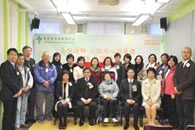
Everjoy - Home Care Service for Persons with Severe Disabilities has moved in the new office at Shun Lee Estate. Our team would provide continuous support and quality service to service users and carers in sustaining their community living.
-
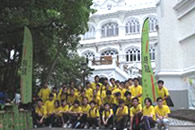
YOU CAN - Potential Exploration Unit received a funding amounted to HK$3,000,000 from the Hong Kong Jockey Club Charities Trust for launching a 3-year project named ‘PATHS to Adulthood - a Jockey Club Youth Enhancement Scheme for Community' in Kwun Tong, Wong Tai Sin and Sai Kung districts.
-
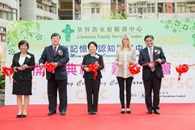
With support from The Keswick Foundation, Mind-Lock Memory and Cognitive Training Centre was moved to Choi Ha Estate to commence its services.
-
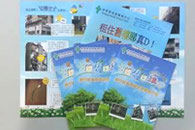
The Buildings Department extended the service contract of our Social Service Team in the Building Department for 2 years, which help people affected by the Department's enforcement actions.
-
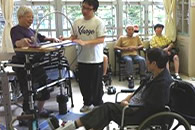
Mind-Lock Memory and Cognitive Training Centre and Lively Elderly Day Training Centre became the Recognised Service Providers (RSPs) of the Pilot Scheme on Community Care Service Voucher for the Elderly.
-
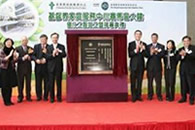
The Renovation project of Headquarters Building was completed. Upgraded barrier-free facilities and expanded service space enabled CFSC to enhance services for people in need. -

Healthy Chinese Medical Centre has been established at ground floor of our headquarters building, to provide acupuncture, moxibustion, bone setting and massage service.
-
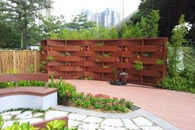
‘Serene Oasis’ – Horticultural Therapy Garden of urban city, situated in Choi Hung with size of 7,000 sq. feet, has opened to the public for use.
-
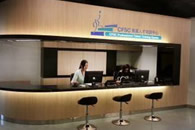
First expanded the self-financing services in Causeway Bay district, CFSC Professional Talent Training Centre was established.
-
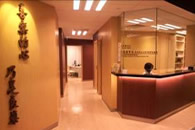
Causeway Bay Chinese Medicine Health Centre has started serving people living or working in Hong Kong Island.
-
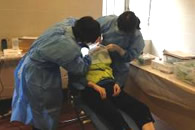
Christian Family Service Centre Dental Services Limited was recognised as a charitable institution by Inland Revenue Department.
-
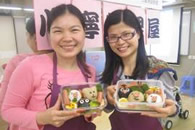
Funded by Operation Santa Claus 2012, ‘Cook with Hope’ Project was launched by Serene Court, aimed at enhancing stress management ability, family relationship and delivering message of ‘Zero Tolerance to Family Violence’.
-
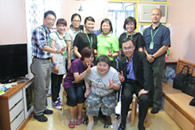
CFSC have been commissioned to operate the three-year Pilot Scheme on Home Care Service for Persons with Severe Disabilities, and set-up Everjoy - Home Care Service for Persons with Severe Disabilities. Home-based care services, including personal care and escort services, nursing care services, and occupational therapist/ physiotherapist rehabilitation training services was provided to persons with severe disabilities waiting for residential care services.
-
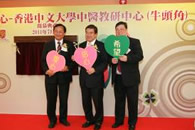
Chinese Medicine Centre for Training and Research (Ngau Tau Kok) has been established, which is jointly operated with the Hospital Authority and the School of Chinese Medicine of CUHK.
-
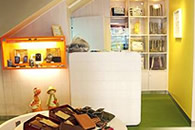
& Care Products Corner has been set up at ground floor of our headquarters building, which displayed products made by our service users of Integrated Vocational Rehabilitation Service.
-
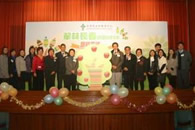
Tsui Lam Day Care Centre for the Elderly has been opened in Tsui Lam Estate, to provide professional day care services for Frail Elders.
-
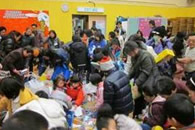
Tin Shui Wai Housing Advisory and Service Team (HAST) has extended its services to Tuen Mun, Yuen Long and Tung Chung, to provide quality services to new residents.
-
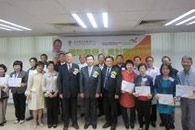
Sponsored by Partnership Fund for the Disadvantaged of Social Welfare Department and RBS Coutts Bank, ‘Auxiliary Professional Project’ has been commenced.
-
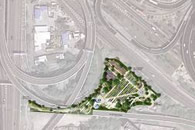
The Agency rented the land in around 75,000 square feet at 2 Kwun Tong Road from Lands Department to develop ‘Urban Oasis’ and ‘Serene Oasis’.
-
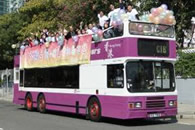
Subsidised by the Social Welfare Department, Wellness Zone – Integrated Community Centre for Mental Wellness has been set up and provided one-stop services to residents and ex-mentally ill persons.
-
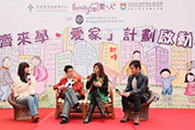
With financial support from the Hong Kong Jockey Club Charities Trust, a pioneer project - 'Learning Family' has been started to convey healthy, happiness and harmony message to the public.
-
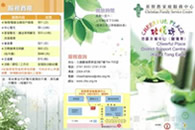
With the funding support from Social Welfare Department, Cheerful Place - District Support Centre (Kwun Tung East) has been set up, aimed at strenghtening life skills of people with disabilities and help them integrate into community.
-
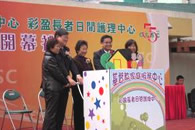
Choi Ying Day Care Centre for the Elderly was established in Choi Ying Estate to provide day care, nursing care, rehabilitation, physical and mental development services for Frail Elders.
-
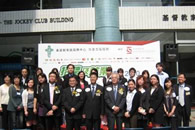
Sponsored by ‘District Caring and Support Trial Scheme’ of Social Welfare Department, ‘Employment Support Programme’ was launched to assist unemployed people in need.
-
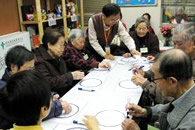
Sponsored by the Bank of China, Mind Lock Memory & Cognitive Training Centre was set up, to provide training and assessment to those patients who are suffering from cognitive impairment through ‘Intellectual, Physical and Spiritual’ ways.
-

‘Employee Service Programme’ was renamed as Vital Employee Service Consultancy, with the aims of improving employee’s work productivity and quality of life.
-
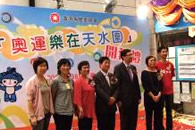
Funded by the Hong Kong Housing Advisory, Tin Shui Wai Housing Advisory and Service Team (HAST) was established to help new tenants in renovation and adaptation.
-
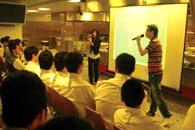
Zero Toxin - Youth Mental Health Project was started to organise concerted efforts in helping the youth to keep away from drugs.
-
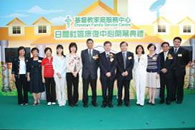
Community Rehabilitation Day Centre was established to serve those clients with physical disabilities, through providing professional rehabilitation services to help them re-integrate into the community.
-
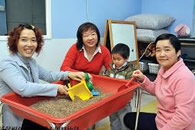
With subsidisation by the Social Welfare Department, the ‘Nanny Next Door - Neighborhood support Child Care’ Project was initiated to avoid leaving children alone at home.
-
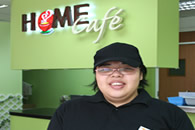
Home Café was set up at ground floor of our headquarters building, which provided training and working opportunities for people with disabilities.
-
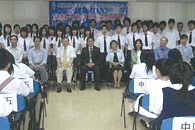
‘Youth Leap Education Centre’ was renamed as Wui Ching College and registered at the Education Bureau.
-
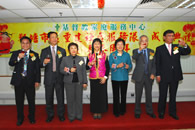
Kwun Tong Urban Renewal Social Service Team was established to render support and social services for residents affected by the Kwun Tong Town Centre Redevelopment Project.
-
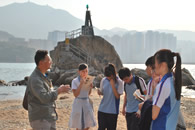
Funded by the ‘Enhancing Self-Reliance through District Partnership Programme’ under the Home Affairs Department, Lei Yu Mun NLCDP started running a social enterprise community-based project namely ‘Dreamland’, to equip local residents with tour-guiding and retailing skills and help them returning to the employment market.
-
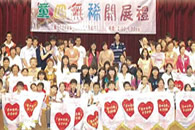
Hearty Anti-Poverty Project for Youngsters (HAPPY) programme was started which aimed to provide focused help to poor young people to nurture their potential and become more competitive.
-
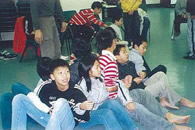
With Sponsor from Hong Kong Jockey Club Charities Trust, a pilot project ‘PATHS to Adulthood’ was launched.
-
Subsidised by the Social Welfare Department, we started the Wong Tai Sin Enhanced Home and Community Care Services.
-
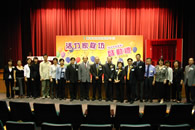
Family Counselling Unit was integrated into our Family Service and renamed as Family Energizer (Integrated Family Service).
-
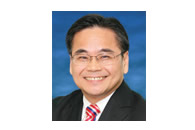
The Third Director Miss Nora Yau Ho-chun retired at the end of 2003 after serving the Agency for 20 years. In 2004, Mr. Kwok Lit-tung succeeded to lead the Agency meeting new challenges to forge ahead.
-
With support from Social Welfare Department, Cherish House was established in Po Tak Estate to provide services for children, youths and their parents.
-
To restructure our integrated services for the elderly, two of our Multi-Service Centres for the Elderly had transformed to Day Care Centres for the Elderly.
-
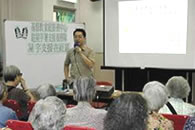
Funded by the Building Department, the Social Service Team in the Buildings Department was set up to help the residents to tackle the problems they encountered in the redevelopment process.
-
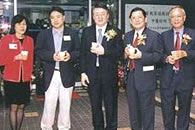
July 2002, co-organised with the faculty of Chinese Medical of The Chinese University in Hong Kong, we set up the Chinese Medical Clinics.
-
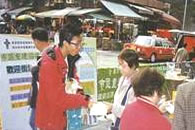
Sham Shui Po Urban Renewal Social Service Team was set up. -
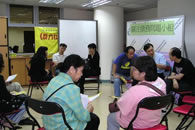
Health Network Empolyment Support Team and Sunny Life Family Support Project for the Debtors was set up. -
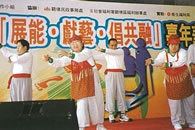
Integrated Service for the Mentally Handicapped Persons was set up to provide a one-stop approach including home-based training, temporary/long-term residence, whole-day respite, holiday care services etc. to meet the various needs of our service users.
-
Jockey Club Youth Leap was established in September. -
Sponsored by Hong Kong Housing Authority, Outreaching Service for the Pilot Rent Allowance for Elderly Scheme was set up to serve all eligible elderly on the waiting list of public housing in Hong Kong.
-
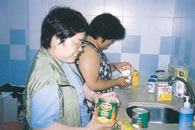
Supported hostel for ex-mentally ill persons - On Yue & On Yee Supported Hostel was set up, aiming to further strengthen the capability of the ex-mentally ill clients before building up full confidence to lead an independent life in the community.
-
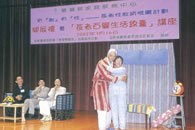
To tackle problems in the relation to sex of elders, the Sex Resource & Counselling Centre for the Elderly was launched.
-
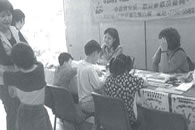
Lai Chi Single Parent Centre was funded by Social Welfare Department to set up for providing various support services to single parents. -
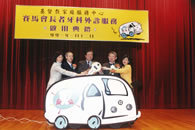
Mobile Dental Service for the Elderly was started to provide on-site dental service for those frail elders who were stayed at the residential homes and day care centres.
-
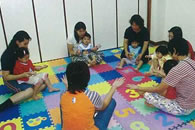
Jackie Chan King Lam Youth Centre was developed into the Self-financed Jackie Chan Whole Person Development Centre.
-
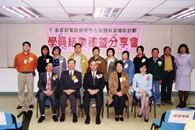
Self-strengthening Employment Assistance Project was lauched to provide individual counselling service for service users to tackle emotional and practical difficulties in employment.
- With subsidisation of the Social Welfare Department, Kwun Tong Enhanced Home and Community Care Services was set up.
-
Physiotherapy Service has been launched and played a complementary role to the Health Centre in promoting community health education to the public.
New Headquarters Building for service expansion and integration
-
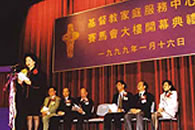
With the funding support of Hong Kong Jockey Club Charitable Trust, Social Welfare Department and other philanthropists, our 'Headquarters' Reconstruction Project' was started in 1995 and completed in 1998. Our new Headquarter was reconstructed from 2-level storey house to 10th Floor Building. New launched services including Cheerland Child Care Centre, Cheerland Kindergarten, True Light Villa District Elderly Community Centre, Dental and other Medical Clinics.
-
‘District-based Employment Supportive Network’ was launched and provided various services including a resource centre, skills training, talk and support group.
-
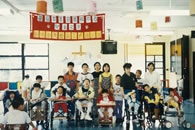
Three Small Group Homes for mild mentally handicapped children began to provide services in Tseung Kwan O.
-
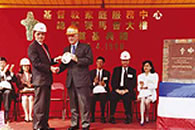
The Foundation Stone Laying of ‘The Jockey Club Headquarters Building’.
-
Our first women protection centre - Serene Court was set up to provide 24-hour emergency lodging and counselling services for women and their children who are suffering from domestic violence.
-
Due to the clearance of Ko Chiu Road Estate, the Neighbourhood Level Community Development Project (NLCDP) was redeployed to serve the priority area of Kwai Chung Estate and renamed as Kwai Chung Estate (Blocks 1-13) NLCDP.
-
Our second Day Care Centre for Elderly - Wang Tau Hom Day Care Centre for the Elderly was set up.
-
The ‘Supported Employment Service for the Disabled’ was launched.
- Our Industrial Social Service was developed into ‘Employee Service Programme’.
-
Our first day nursery - Tak Tin Day Nursery was opened.
- Yang Chen House, our first home for the elderly, was moved to Tseung Kwan O in alignment with the government's plan to develop Tiu Keng Leng.
-
With the sponsorship of ‘Jackie Chan Charitable Foundation’, we initiated Jackie Chan King Lam Youth Centre.
- Began to develop rehabilitation services and set up Tsui Lam Sheltered Workshop and Half-way House in Tseung Kwan O.
-
Our second elderly residential home Yam Pak Charitable Foundation King Lam Home for the Elderly was opened.
-
‘Mutual Support Programme’ was launched to address the needs of maltreated women.
-
Initiated ‘Family Aide Service’.
Headquarters Rebuilt to meet service needs
-
With the financial support of four factories in Kwun Tong, we developed the ‘Industrial Social Service’.
-
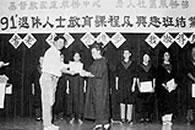
The first Multi-Service Centre for the Elderly was opened.
-
The headquarters was too weather-beaten and too small to meet the expanding demand for social services, so the Board of Directors decided in 1987 to rebuild the headquarters.
-
‘Clinical Psychological Service’ was set up.
-
‘Afterschool Care Service’ was provided for those children who parents were working outside.
-
Our first Day Care Centre for the Elderly was set up in Kowloon East.
-
‘Single Parent Service’ was launched.
-
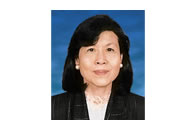
After served for 26 years, the second Director Miss Doris Caldwell retired. Miss Nora Yau Ho Chun was succeeded the position of Director.
-
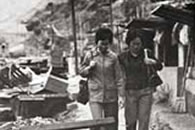
Establishment of ‘Outreaching Health Service’.
-
Started ‘Adult Education’ for people aged 18 or above, to help them pursue further study and enrich their life.
-
‘Tsui Ping Community Development Project’ was launched to act as the bridge between residents and Housing Authority and help residents to tackle the problems in redevelopment process.
We achieved sustained development in diversified service
-
‘Industrial Social Service’ was initiated to provide workers with enquiry service on labour legislation, labour education and fellowship services.
-
Children Centre commenced operation to address the growth needs of those parents who were burdened with big families and poorly educated.
-
Started to operate ‘Lei Yue Mun Neighbourhood Level Community Development Project’ to improve the environment and living quality of the residents.
-
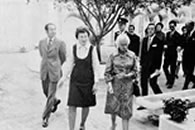
‘Elderly Mutual help Centre’ was established to encourage the elderly in the community to better use their time and potentials and live group life.
-
‘Home Help Service’ which provided care for the needy elderly referred by district groups and hospitals began to operate.
-
‘Family Life Education Service’ was launched to advocate harmony among family members.
-
‘Community Development Services’ was set up to improve the living environment of the thousand-odd residents in the resettlement areas at Hong Ning Road and Hip Wo Street, and help them move into public houses earlier.
-
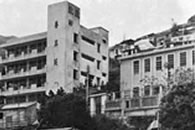
Yang Chen House, the Agency's first home for the elderly, was opened at Tiu Keng Leng.
-
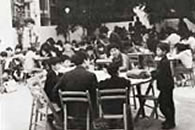
‘Youth-oriented School Social Work Unit’ commenced its operation.
Growth in Kowloon East
-
The Agency expanded services in Tiu Keng Leng.
-
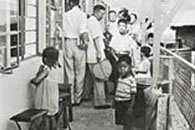
Completed 56 and 46 concrete cottages in Chuk Yuen and Tiu Keng Leng respectively.
-
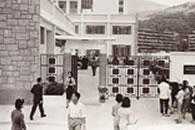
The Agency was renamed as ‘Christian Family Service Centre’ and moved to a two-storied building at 3 Tsui Ping Road, Kwun Tong to answer the call of the government to develop new towns and serve the people in need in Kowloon East.
-
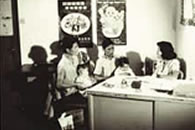
Establishment of the first Health Centre in the fields of NGOs.
-
‘Elders Group’ was set up and started to provide regular service to group members.
-
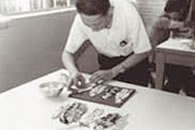
The Agency began to provide enquiry and family counselling services in 1964. In particular, the Handicraft Department, which aimed to promote self-reliance, assigned sewing homework and paid them on piecework basis; and later the Department trained people to make exquisite handicrafts, which were exported and well received overseas. There was also a showroom on 2/F, 191 Prince Edward Road.
-
Provided full medical allowance for service users of Rennie’s Mill Feeding Centre.
-
Co-operated with other churches, the Agency built cottages in Tiu Keng Leng for families in need.
-
Provided repairment services for houses damaged by Typhoon Wanda.
-
Well-Baby Clinic was set up in Tiu Keng Leng.
-
Rennie’s Mill Feeding Centre was set up for ex-lung disease patients in Tiu Keng Leng, which also provided meal and learning support for boarding students.
Starting to Serve People
-
In view of the marked spread of lung disease, with the support of Junk Bay Medical Relief Council, the Agency secured 8 sickbeds from Haven of Hope Hospital for service users in need.
-
Started to build around 20 concrete cottages in Chuk Yuen.
-
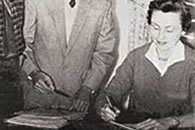
Miss Doris Caldwell was sent to take over Miss Boone's work in 1957 for sustained development of the Agency in response to social needs.
-
Completed 4 new concrete cottages.
-
Completed 3 new concrete cottages for 3 families in Chuk Yuen. In order to meet the urgent needs of refugees, the agency applied to build more concrete cottages from the government.
-
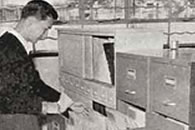
Our Headquarter was moved to Ground Floor, 221 Sai Yee Street in Mong Kok. We provided assistance on accommodations and job seeking for refugees, and sought government support to build concrete cottages in Chuk Yuen.
-
Our Headquarter was established at 3/F, 212 Tung Choi Street, Mong Kok and started to provide social service to the society.
-
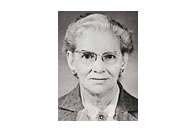
The Agency, former American Presbyterian Case-Work Centre, was founded by Miss Muriel Boone, a United Presbyterian missionary.

